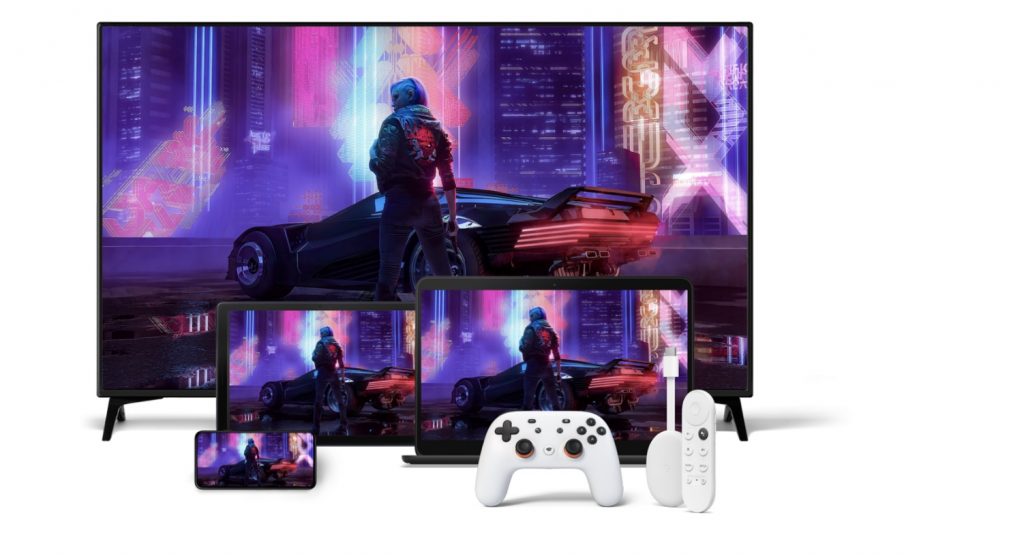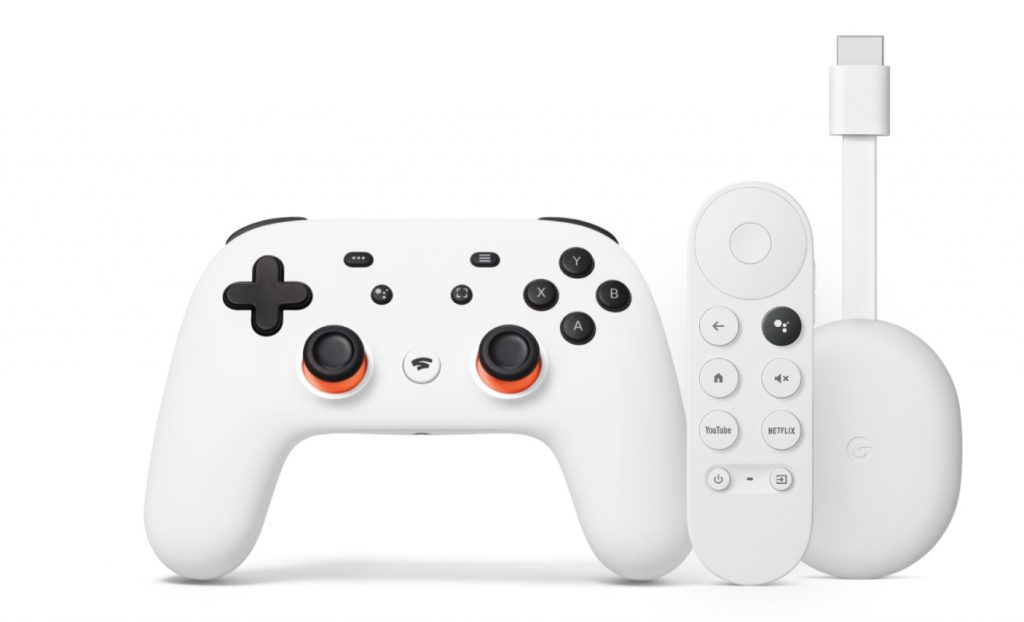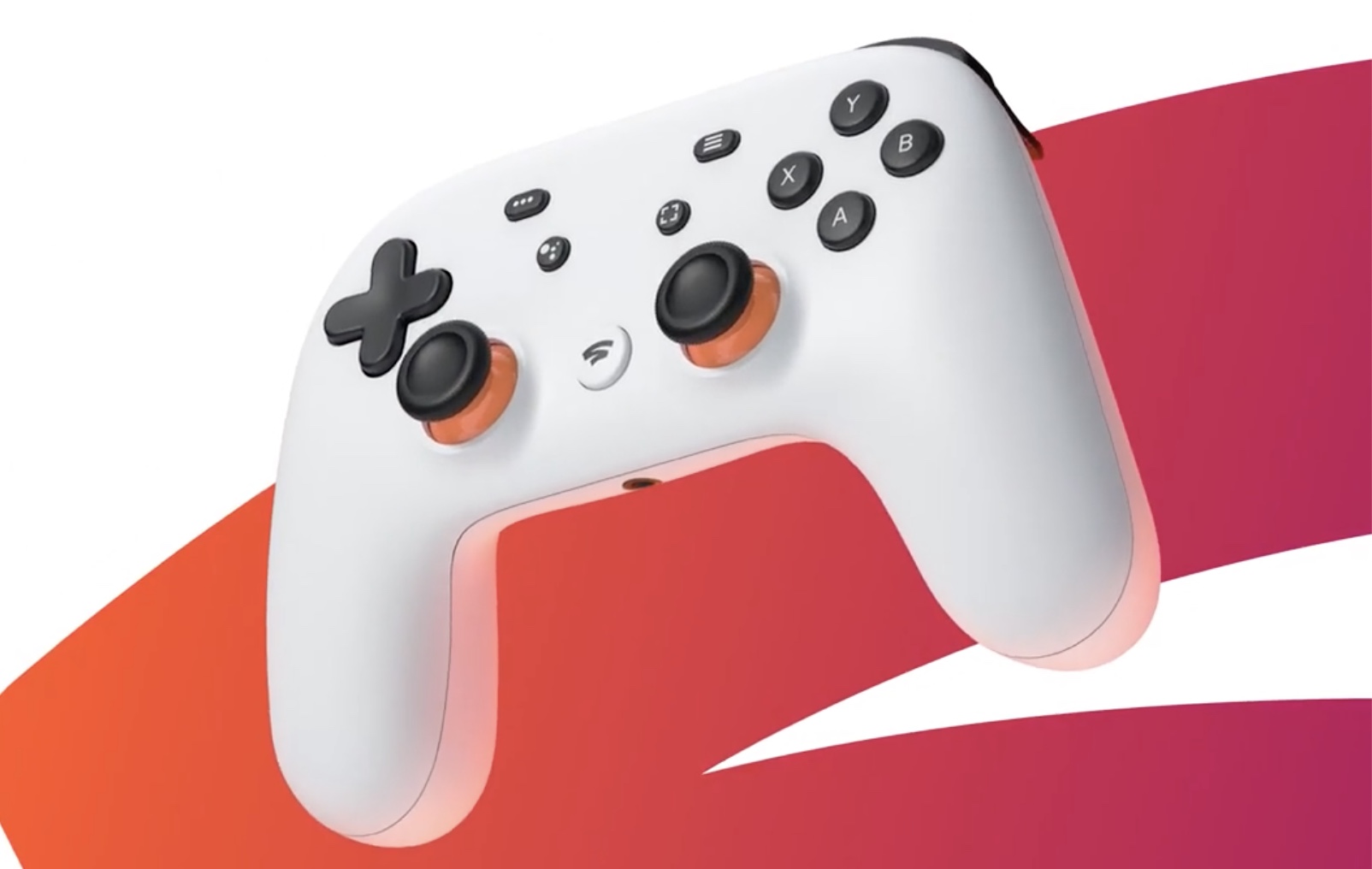Google have announced that Stadia – their online streaming games platform – is going to be shuttered on the 19th January 2023 with all current subscribers receiving refunds. It’s a shame really as – by and large – the ambitious Stadia project actually worked and had its fans.
However, coming from Google – perhaps the world’s biggest proponent of ‘fail fast, fail often’ culture – is it really a surprise? Remember social network Google+? Twitter clone Google Buzz? Email replacement Google Wave? AR platform Tango? Daydream? Glass? Inbox? Allo?… We could go on. While some (most?) companies prefer to get products right and iterate on innovations perhaps made by more daring pioneers (we’re looking at you, Apple), Google instead love flying headfirst into ‘moonshots’ then – as a further sign of their bravery and forward thinking – have zero qualms about killing them before they even get a foothold. Hurrah!
Even if – as is the case of Stadia – it was actually pretty good.
Stadia y’say? What’s that?
So what even was Stadia? Well, while it wasn’t the first games streaming service, it certainly was the one that got the most built-out, with it’s own bespoke controller, and back-end tech courtesy of one of the biggest internet companies on the planet.

Launching in November 2019 it went like this. First you bought a Stadia controller and Chromecast which came packaged together for $99 (or £89.99). Initially you got three months of the service with this ‘Founders’ pack, but this was dropped to one month with the ‘Premium’ pack that came later. After this initial ‘free’ period you paid a monthly fee to maintain access. And if you didn’t pay that monthly sub, you lost access and had a controller that controlled precisely nothing. Sounds harsh, but in reality it was just like Prime or Netflix.
Though here you could buy games too… At full price. Which often appeared to be more expensive than boxed copies which were by now on special offer or in digital bundles. Though you could keep and play these games without a Stadia subscription (albeit on complex end-user rights that in the small print meant you didn’t really own anything…).
And the games were great. Big titles such as Cyberpunk 2097 and Resident Evil Village were on there. And you got the Ubisoft Plus games (the rebranded Uplay) so you had games like Assassins Creed: Valhalla, Watch Dogs: Legion and Far Cry 6 too.
But was $99 too pricey? Don’t worry. You don’t even need to buy anything. Just pay your monthly sub, use your own phone or tablet as your controller (the range of supported handsets and hardware was small but now is massive) and stream to that device. Or to your PC. And you can buy Stadia controllers on their own if you want to add one to your sub (or if you simply already have, or don’t want that in-pack Chromecast). Yours for $59. Simple!
Except it wasn’t. Somewhere in the last four paragraphs that we’ve spent explaining the thing, gamers either got confused, got bored, or got sceptical. In short, despite landing the games, offering great hardware and a providing a miraculous, too-good-to-be-true service that actually worked, gamers gave Stadia the swerve or – perhaps worse – didn’t even know it existed.

What went wrong with Stadia?
In short, it was all about communications. No, not the high-speed video streaming, and controller input collecting that made Stadia possible, but the far simpler process of telling gamers about it and how they can ‘get it’. Stadia underwent too many changes to packs and offers. Too many options and ins. An underwhelming list of supported hardware only to be replaced by an overwhelming one. So it’s game streaming? Like Netflix? But I can buy games as well? And they’re really expensive? Even though I’m paying for a subscription too? Will they even work on my phone? And I need to buy a controller? Or I don’t need to buy a controller? And… What’s Stadia again?
It fell to Vice President and General Manager of Stadia, Phil Harrison to announce that the service was being shuttered earlier today. Harrison – once the golden boy of PlayStation, poached away to do likewise for Microsoft, poached again to do likewise for Google – this morning finally shot himself in the foot and Stadia in the head.
It’s not all bad… OK. It is.
There is one aspect that will give some cheer to Stadia fans as Harrison confirmed refunds for nearly every aspect of the service. Which is great… But given the time, effort and expense put in (including luring away the hitherto unblemished, board-member-for-life Phil Harrison) it all feels like a messy, shameful shambles.
“We will be refunding all Stadia hardware purchases made through the Google Store, and all game and add-on content purchases made through the Stadia store,” said Harrison. And indeed, while those who remained loyal to Stadia are likely to be unhappy, it’s highly unlikely that any of them will be in any way out of pocket. In fact, players who bought games and have played (and probably completed) them, have just had years of fun for precisely nuppence.
Just to be clear here. Yes, they’re even refunding the cash you spent on the hardware. Which you get to keep. And can use as a… paperweight?…

Ironically, had a less well-off company being behind Stadia – one that actually needed the money – odds are that they would have made a go of it. Tidied up the options. Created one last irresistible bundle. Held a press event to announce a raft of new titles. But it’s precisely BECAUSE Google are so rich, CAN afford to waste hundreds of millions on something, AND have a rep for running away from failure rather than fixing anything, that they’re shutting Stadia down.
Be under no illusion. Stadia didn’t fail because its tech wasn’t up to scratch. Concerns about ‘having sufficient broadband speed’ and ‘which handsets it worked on’ turned out to be ill-founded wastes of worry. Stadia failed because of Google’s inability to message correctly, it’s culture of aimless innovation over good pre-launch prep and post-launch support and it’s reputation for leaving projects half-baked until they’re canned. In fact – and it’s important that we remember this – Stadia didn’t actually fail at all.
Sigh.
So what next for game streaming?
Despite Stadia’s strife the future looks bright for game streaming. Razer have announced their Razer Edge 5G device. Logitech have their G Cloud Device. And the popularity and clear utility of services such as Microsoft’s Gamepass continue to give its hardware and platforms distinct advantages over more layered and obfuscated (though not necessarily any worse) offers from rivals PlayStation and Nintendo.
If anything, like music and like TV, the case for games on demand seems to be getting stronger and stronger. It’s a shame that Google were too busy to play the game.
Daniel Griffiths is a veteran journalist who has worked on some of the world's biggest entertainment, home and tech media brands. He's reviewed all the greats, interviewed countless big names, and reported on thousands of releases in the fields of video games, music, movies, tech, gadgets, home improvement, self build, interiors, garden design and more. He’s the ex-Editor of PSM3, GamesMaster, Future Music and ex-Group Editor-in-Chief of Electronic Musician, Guitarist, Guitar World, Computer Music and more. He renovates property and writes fun things for great websites.



































